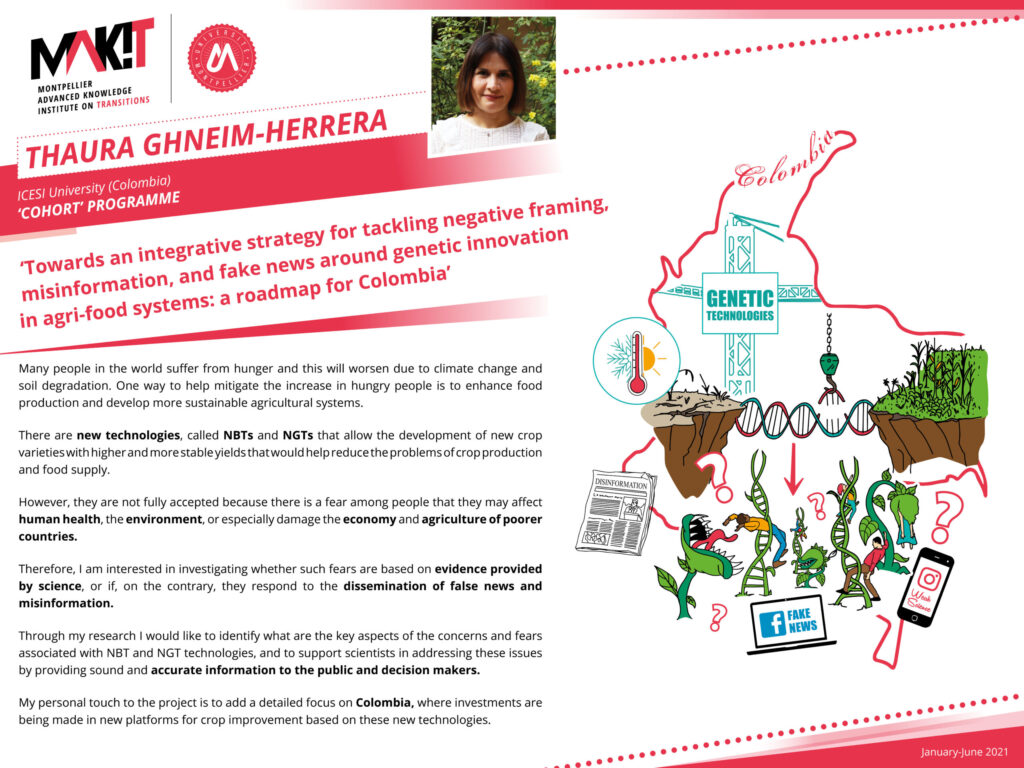Thaura Ghneim-Herrera
Thaura Ghneim-Herrera has over a decade of experience studying the response of crop species to abiotic stress, especially drought and heavy metal toxicity.
She graduated with a PhD in Biological Sciences from Exeter University (UK) after completing her undergraduate studies in Biology at the Universidad Central de Venezuela (Caracas, Venezuela).
Dr. Ghneim-Herrera is currently a Senior Lecturer at the Faculty of Natural Sciences at ICESI University (Cali, Colombia) where she leads research focused on improving the response of rice to environmental stress using genomic and other omic tools to support agri-food transitions.
As a researcher, she has been involved in Colombia’s national initiatives to strengthen food security and agricultural transitions through genetic improvement and has always been interested in the public perception of new biotechnologies as a key element for the social appropriation of science and technology.
Many people in the world suffer from hunger and this will worsen due to climate change and soil degradation. One way to help mitigate the increase in hungry people is to enhance food production and develop more sustainable agricultural systems.
The extraordinary advances in genetic technologies offer unprecedented opportunities for agri-food transitions. There are new scientific techniques, called NPBTs (New Plant Breeding Techniques) and NGTs (New Gene editing Techniques) that allow the development of new crop varieties with higher and more stable yields that would help reduce the problems of crop production and food supply.
However, globally the perception of the potential and benefits associated with genetic innovation are overshadowed both by information bias and the inability to convey its impact to farmers and society. In this context, these techniques are not fully accepted for fear that they may affect human health, the environment, or especially damage the economy and agriculture of poorer countries.
Therefore, I am interested in investigating whether such fears are based on evidence provided by science, or if, on the contrary, they respond to the dissemination of false news and misinformation. I also seek to define the contribution and responsibility of scientists and science journalists in misinformation, dissemination of false news and low social acceptance due to ineffective communication. Through my research I would like to identify what are the key aspects of the concerns and fears associated with NBT and NGT technologies, and to support scientists in addressing these issues by providing sound and accurate information to the public and decision makers.
My personal touch to the project is to add a detailed focus on Colombia where the public perception of genetic innovations is also affected by fears related to access to technology, technological dependence, unfair world markets, past experiences with genetically modified organisms, and the protection of endemic genetic resources. Currently, the country is investing in new platforms for crop improvement based on these new technologies.
